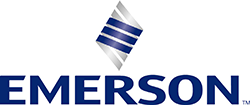Whitepapers

This white paper addresses the challenges oil and gas producers face in reducing fugitive emissions and minimizing operational costs. It explores how advanced low-power electric valve solutions provide a zero-emission alternative to traditional pneumatic dump valves. By eliminating vented emissions, these solutions reduce energy waste and simplify maintenance, minimizing the need for frequent inspections and repairs. Additionally, the paper highlights how the valves' minimal power consumption enables reliable performance in remote sites with limited access to grid power, allowing producers to operate efficiently using small solar arrays. By adopting these innovative solutions, operators can reduce costs, enhance reliability, and improve environmental performance.
Download Whitepaper
The hidden dangers of corrosion under insulation (CUI) and chloride stress corrosion cracking (CSCC) are especially prevalent on assets used in the production of liquified natural gas. However, newer liquid coatings offer facilities the opportunity to mitigate corrosion far longer than previous options, helping owners extend coating maintenance schedules, reduce operational costs and enhance safety. Learn more about these advanced CUI-mitigation solutions in this informative paper.
Download Whitepaper
For accurate and reliable measurement of gas contaminants, it is critical that the instrument is sensitive only to the contaminant itself and is not impacted by any variance in the gas stream composition. Download this white paper to learn how the variance, also known as cross-interference, can be managed by Sensi+ natural gas analyzer.
Download Whitepaper
This case study outlines how a leading oil and gas producer partnered with ABB to implement Ethernet-connected Coriolis meters to efficiently automate compliance verification in response to regulatory demands. The results reduced cost and created operational efficiencies by streamlining of data acquisition, reducing manpower hours, and enhancing operational insights for timely and effective decision making.
Download Whitepaper
Low-Application Temperature (LAT) Fusion-Bonded Epoxies (FBE) improve pipeline girth weld coating efficiencies. Keymay Industries adopted Sherwin-Williams PipeClad® 2000 LAT, allowing for coatings at lower temperatures. This innovation reduces energy costs, lowers emissions, and enhances application consistency. With over 50,000 successful applications and a repair rate of less than 1%, Keymay has significantly benefited from this advanced coating technology.
Download Whitepaper
In 2022 XTO completed the implementation of cloud-based MuddyBoots.online as their field measurement solution for managing over 20,000 meters. Following two years of project scoping, product evaluation, and a successful pilot project, XTO Energy, a subsidiary of ExxonMobil, has completed the implementation of Muddy Boots as their field measurement solution used by over 200 technicians across all XTO assets. The Case Study discusses XTO’s path to selecting Muddy Boots, as well as the success of their rollout project.
Download Whitepaper
Offshore and onshore facilities in the oil and gas industry must protect workers from burns using physical barriers or insulation systems. Physical barriers are costly and obstructive, while insulation systems risk corrosion under insulation (CUI) if wet. Thermal insulative coatings (TICs), such as Heat-Flex® 7000, offer an effective alternative, providing burn protection, reducing CUI risk, and maintaining process heat. Heat-Flex 7000 meets OSHA guidelines, resists moisture, and enhances safety without the drawbacks of traditional methods.
Download Whitepaper
Effective alarm management is vital in pipeline operations, allowing operators to be proactive against incidents and ensuring operational safety. By promptly identifying abnormal conditions and alerting operators, alarm systems play a vital role in averting potential hazards and maintaining operational integrity. Our latest white paper examines the complexities of alarm management, offering a roadmap for addressing inefficiencies and enhancing overall performance. By exploring collaborative strategies and best practices, this comprehensive guide aims to equip pipeline operators with the tools needed to optimize their approach to alarm management.
Download Whitepaper
- Intensity, Rainbow Energy to Build 344-Mile Gas Pipeline Across North Dakota
- Energy Transfer to Build $5.3 Billion Permian Gas Pipeline to Supply Southwest
- Enbridge Sees High Demand to Expand 593-Mile Canada-to-U.S. Gulf Oil Pipeline
- Strike Pioneers First-of-Its-Kind Pipe-in-Pipe Installation on Gulf Coast with Enbridge
- 208-Mile Mississippi-to-Alabama Gas Pipeline Moves Into FERC Review
- A Systematic Approach To Ensuring Pipeline Integrity
- 275-Mile Texas-to-Oklahoma Gas Pipeline Enters Open Season
- LNG Canada Start-Up Fails to Lift Gas Prices Amid Supply Glut
- Strike Pioneers First-of-Its-Kind Pipe-in-Pipe Installation on Gulf Coast with Enbridge
- Enbridge Sees High Demand to Expand 593-Mile Canada-to-U.S. Gulf Oil Pipeline



